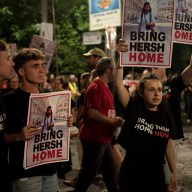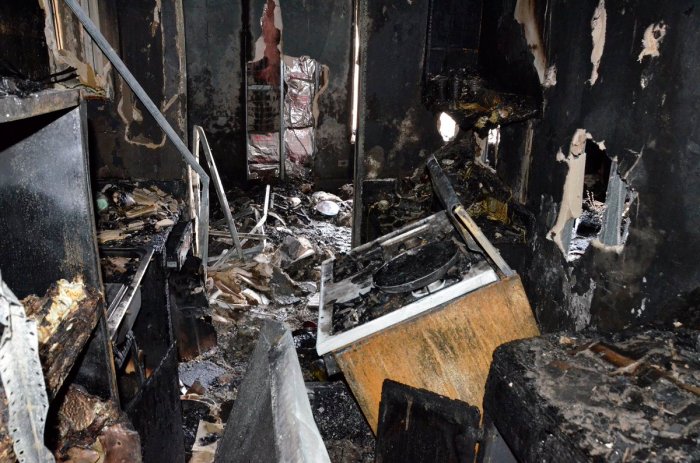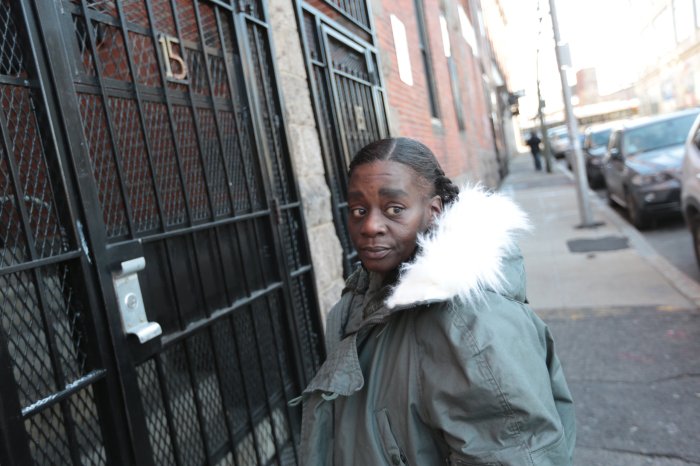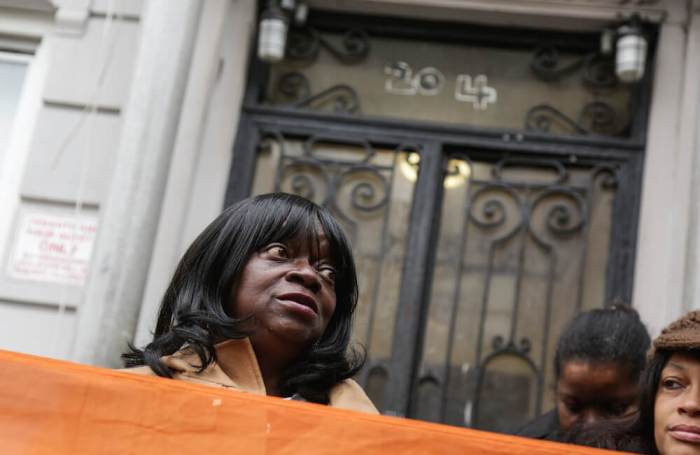Yielding to unwavering community pressure from Queens residents, the city has given up on its plan to convert a Holiday Inn Express Hotel in Maspeth into a homeless shelter.
The battle over the hotel underscores the city’s daunting challenge of finding shelter for homeless people, a problem that has reached crisis proportions.
Though the plan to create a permanent shelter in the Maspeth hotel has been shelved, the city intends to continue to rent rooms in the hotel for “single, working adults” who are homeless.
“The Maspeth Holiday Inn will continue to provide temporary housing for working adults…,” said Mayor Bill de Blasio in a recent news release.
“The owner of the Maspeth Holiday Inn refused to allow the city to convert the hotel into a shelter,” said Department of Social Services Commissioner Steven Banks, referring to Harshad Patel, co-owner of the hotel who backed out of the deal several weeks ago claiming that the protests were hurting his business. But now, new scrutiny is being trained on the city’s overall strategy of using hotels as temporary shelters.
“We didn’t back down on sheltering homeless New Yorkers in Maspeth and we won’t in other communities,” added de Blasio. “We have a citywide moral and legal responsibility to shelter homeless New Yorkers.” The statements last week followed months of nightly protests in front of the hotel in Maspeth and at one point in front of Bank’s house in Brooklyn.
NY1 reported that the city will be still be renting about 30 rooms for single men at the Maspeth hotel, including unspecified on-site services and security.
Queens lawmakers Councilwoman Elizabeth Crowley and Democratic state Sen. Joe Addabbo Jr. already have a lawsuit pending against the city for violating a city law which stipulates that homeless shelter units must have kitchens. As of last September, there were approximately 6,000 individuals being sheltered in commercial hotels citywide, according to city records.
It costs $94.57 per day to shelter an individual and $120.22 a day to shelter a family, DHS records show.
Crowley, whose district includes the Maspeth hotel, told NY1’s Inside City Hall last week that the mayor’s homeless policies have “failed” and are “impractical” and have led to hostility towards the mayor and his administration. Addabbo also blasted the mayor’s decision to continue to use the hotel as emergency shelter, saying that the mayor “still doesn’t get it.”
“To think that all the unprecedented anger, all the frustration, the peaceful protests by compassionate residents… could have been avoided if the mayor asked elected officials for assistance resolving the foreseeable homeless crisis, instead of dictating inappropriate sites upon us,” the senator said. Stephan Russo, Executive Director of the Goddard Riverside Community Center, a nonprofit that holds a contract with the city to do street outreach in Manhattan, also believes that the practice of using hotels as emergency homeless shelters in the city must end. “I recognize the city is obligated to shelter people and that’s a big challenge,” Russo says. “But we need to do everything we can to keep people in their homes and in their communities.” Russo noted that there are several alternatives to the controversial use of hotels as shelters, such as supportive housing, which is permanent housing whereby tenants pay 30 percent of their income as rent and receive services such as case management and counseling. More than 90 percent of people who move from the streets into supportive housing remaining housed, he said.
George McDonald, founder and president of The Doe Fund, a non-profit homeless advocacy organization, believes that the city is doing what it can and what it should to help the homeless.
“In Maspeth, the city is setting aside rooms for employed men struggling with homelessness. To some, these are just hotel rooms,” McDonald said.
“But to the men who will temporarily live there, they’re springboards back to work, family…to life as contributing members of society. There could hardly be a better use for them than fulfilling our city’s promise of opportunity.”
Critics say scrapped shelter plan exemplifies failed homeless policy
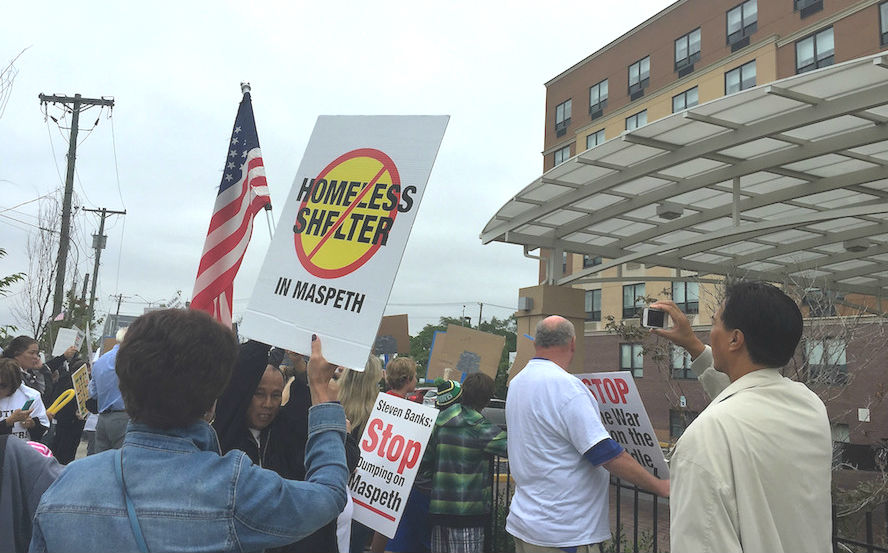
Christina Wilkinson









